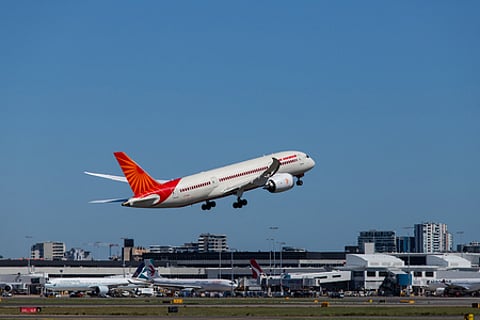

MUMBAI: The aviation industry faced renewed safety concerns following Thursday's crash of an Air India Boeing 787-8 Dreamliner, marking the first fatal incident involving this aircraft model. Flight Al-171, carrying 242 passengers and crew, went down shortly after takeoff from Ahmedabad's Sardar Vallabhbhai Patel International Airport en route to London Gatwick.
The cause of the crash was not immediately known as the country’s aviation regulator DGCA, the Tata Group run Air India and aircraft manufacturer Boeing are yet to issue detailed statement on what led to the crash. Boeing said in a statement that they aware of initial reports and are working to gather more information.
This tragedy strikes a particularly sensitive nerve for Boeing, coming on multiple safety incidents involving its aircraft over the last few years. The crash raises urgent questions about the safety of Boeing's widebody aircraft at a time when the aerospace giant is still addressing quality control issues across its product line.
Aviation authorities worldwide are expected to scrutinize the Dreamliner's safety protocols as the investigation into this unprecedented accident begins. “DGCA and aviation regulators worldwide will have to take a strong call on Dreamliners to avoid future mishaps. This accident particularly raises eyebrows given a Boeing whistleblower had raised serious safety concerns last year,” a former head of DGCA told TNIE.
Boeing Co’s shares plunged over 8% in premarket US trading on Thursday. It opened nearly 6% lower on U.S. exchanges.
Boeing came under renewed scrutiny last year after whistleblower Sam Salehpour, an engineer at the company, testified to the US Senate about structural concerns in the Dreamliner’s fuselage. He alleged that there is no safety culture at Boeing and that employees who raise the alarm are ignored, marginalized, threatened and sidelined.
Boeing is facing multiple US Federal Aviation Administration (FAA) investigations over safety concerns. The aviation regulators of the US called for an inspection of Boeing Co's 787 Dreamliner aircrafts following an incident of a mid-air plunge in a flight during March, 2024.
Boeing aircraft have faced multiple safety crises in recent years, with several high-profile crashes and in-flight emergencies since 2018. The most recent tragedy occurred in December 2024 when a Jeju Air Boeing 737-800 crashed during landing, resulting in 179 fatalities according to official reports.
Boeing faced a major setback in March 2019 when aviation regulators around the world, including India, started grounding 737 MAX aircraft following its involvement in two fatal crashes that killed 346 people. The first crash took place in Indonesia in October 2018 (killing 189 passengers) while the second accident took place in March 2019, when Ethiopian Airlines Flight 302 crashed, killing 157 people.
Among Indian carriers, Air India currently operates a fleet of 787-8s, which it uses for long-haul international routes including to the UK, North America, and the Middle East. IndiGo has a small fleet of Boeing 787-9 Dreamliner aircraft leased from Norse Atlantic Airways
Air India first committed to the 787 Dreamliner program through a landmark 68-aircraft order with Boeing in January 2006. The ill-fated aircraft involved in the June crash took its first flight on December 2013 and was delivered to Air India in January 2014. Air India operates 27 Boeing 787-8 aircraft, before June 12, that serves as the backbone of its long-haul operations.